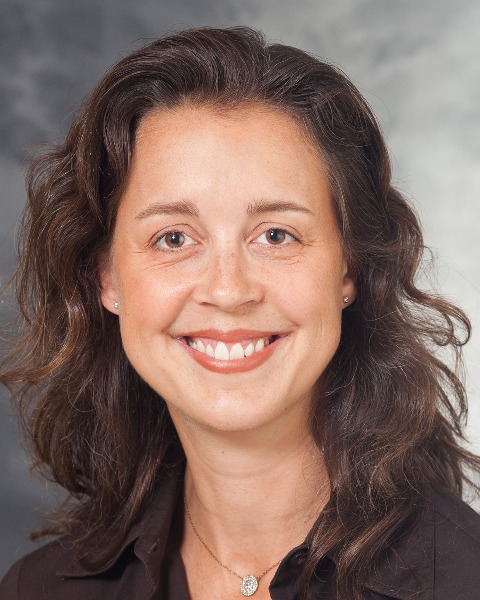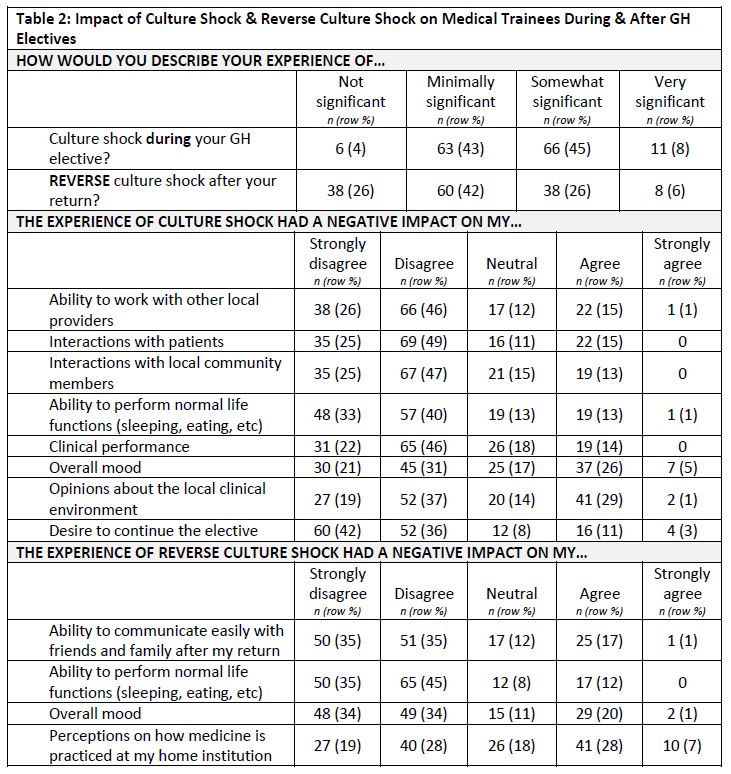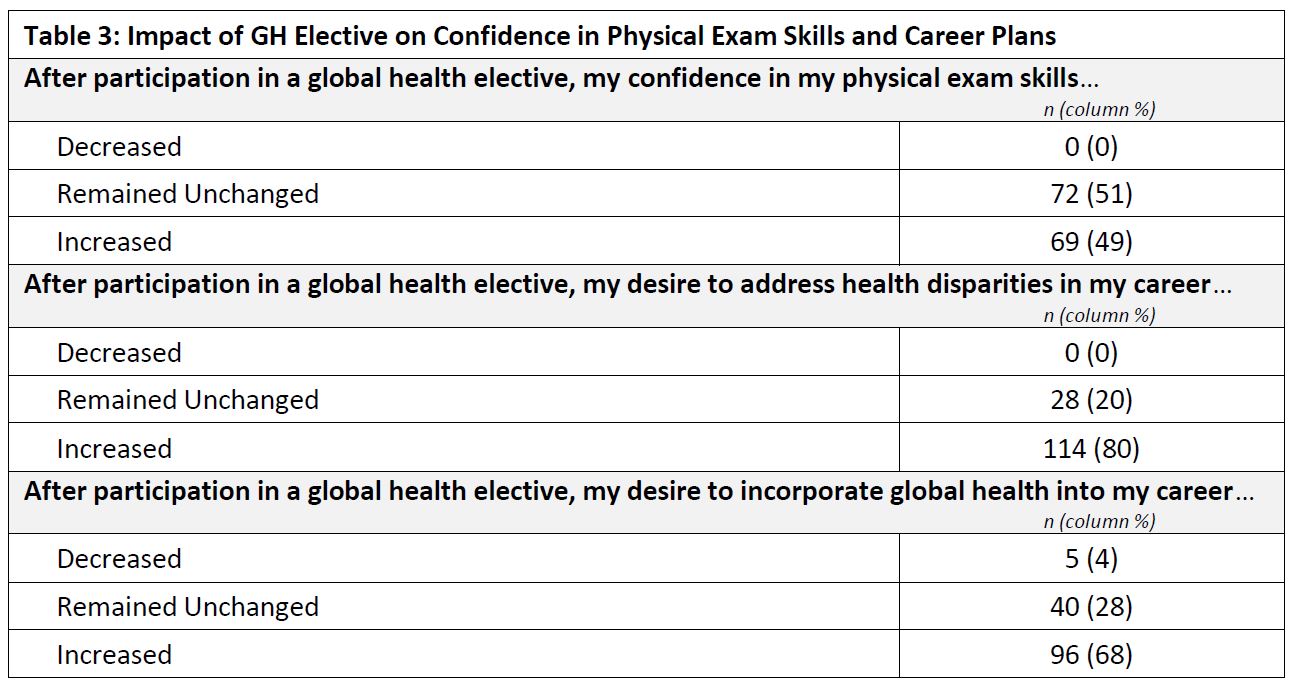Global Neonatal & Children's Health
Global Neonatal & Children's Health 3
543 - Impact of Global Health Electives: Culture Shock, Confidence, & Career Plans
Monday, May 1, 2023
9:30 AM - 11:30 AM ET
Poster Number: 543
Publication Number: 543.409
Publication Number: 543.409
Nicole E. St Clair, University of Wisconsin School of Medicine & Public Health, Middleton, WI, United States; Kristina Devi Howell, University of Wisconsin School of Medicine and Public Health, Madison, WI, United States; Elizabeth Groothuis, Ann & Robert H. Lurie Children's Hospital of Chicago, Chicago, IL, United States; Stephanie M. Lauden, Children's Hospital Colorado, Denver, CO, United States; Vanessa McFadden, Medical College of Wisconsin, Milwaukee, WI, United States; Megan S. McHenry, Indiana University, Indianapolis, IN, United States; Stephen P. Merry, Mayo Clinic Alix School of Medicine, Rochester, MN, United States; Michael B. Pitt, University of Minnesota, Minneapolis, MN, United States; Stephen Warrick, University of Cincinnati College of Medicine, Cincinnati, OH, United States; Samantha L. Wilson, Medical College of Wisconsin, Brookfield, WI, United States; James H. Conway, University of Wisconsin School of Medicine and Public Health, Madison, WI, United States

Nicole E. St Clair, MD (she/her/hers)
Associate Professor of Pediatrics
University of Wisconsin School of Medicine & Public Health
Middleton, Wisconsin, United States
Presenting Author(s)
Background: Global health (GH) electives often occur within markedly different cultural, ethical, economic, and clinical paradigms. Post-return, trainees frequently recall symptoms attributable to culture shock and describe their experiences as transformative. There is limited data available to quantify the psychosocial and professional impact of GH electives on trainees.
Objective: The purpose of this study is to describe the impact of global health electives on trainee culture shock, confidence in physical exam skills, and future career plans related to GH and health disparities.
Design/Methods: From 2016-2020, our study team recruited medical trainees across 9 Midwest training institutions with GH training programs into a survey study prior to their GH elective participation. Participants completed online REDCap surveys at the following intervals: 7 days pre-departure, every 5 days during the elective, and 30 days post-return. A 5-stage model of culture shock was used, and it was defined as the stress, anxiety, or discomfort a person feels when they are placed in an unfamiliar cultural environment. Surveys included participant demographics, on-site training conditions, and post-return impressions. Outcomes were summarized using descriptive statistics.
Results: 252 trainees enrolled (1/4 medical students, 3/4 GME trainees). Of those, 98% provided pre-departure demographics (Table 1), and 58% completed the post-return survey. Post-return surveys revealed that 96% and 74% of trainees endorsed experiencing culture shock (during) and reverse culture shock (after) their GH electives, respectively, with 54% impacted somewhat or very significantly during, and 32% after (Table 2). 13-16% of trainees felt that culture shock negatively impacted their professional interface (interactions with local providers, patients, and the community), and 31% felt it negatively impacted their mood. Reverse culture shock had the greatest negative impact on their perceptions of how medicine is practiced at their home institutions (35%). Post-return, 49% of trainees reported increased confidence in physical exam skills; and 68% and 80% had increased desire to incorporate GH into their careers and to address health disparities, respectively (Table 3).
Conclusion(s): Medical trainees from these institutions almost universally experienced symptoms attributable to culture shock during GH electives, affecting their wellness and professionalism to varying degrees. Despite this, GH electives were associated with increases in self-perceived clinical skills and commitment to addressing health disparities.



